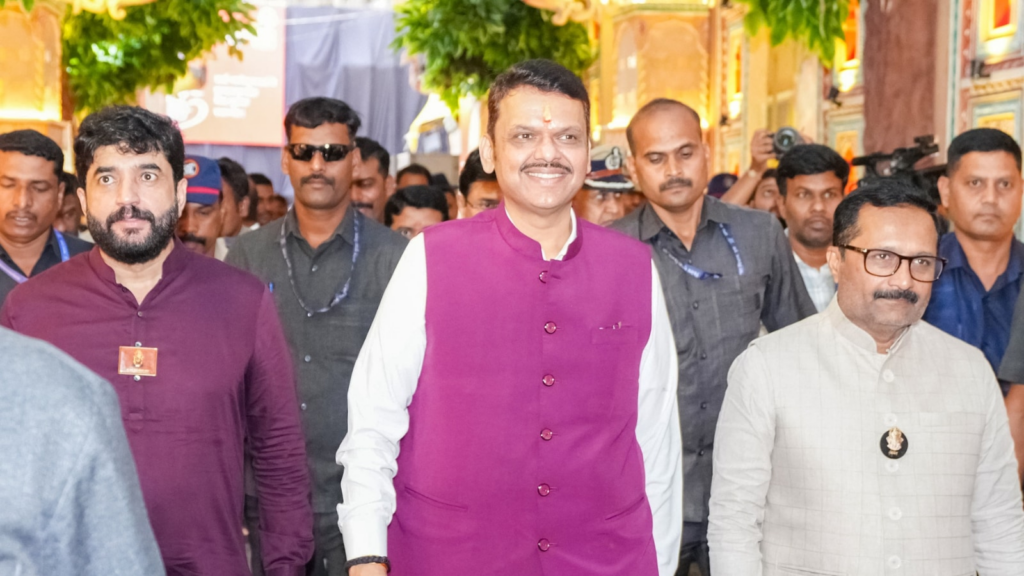A WEEK is a long time in politics. It took Maharashtra Chief Minister Devendra Fadnavis five days, to undo two years of brickbats over the Maratha reservation issue.
As Manoj Jarange Patil called off his fast and vacated Mumbai on Tuesday, proclaiming that he was going home with “six of my eight” demands met, the Maratha quota activist wasn’t the only one seen as victorious. So was Fadnavis, who had managed to stand his ground, ensured that Jarange Patil’s agitation didn’t drag on, and let the courts strategically take the lead in handling him.
So much so that even Jarange Patil was persuaded to praise the CM – a far cry from September 2023, when the lathicharge on a protest led by the activist, under Fadnavis as Home Minister in the previous Mahayuti government, locked the two into a bitter confrontation.
Fadnavis’s success shone brighter for the fact that his two Deputy CMs Eknath Shinde and Ajit Pawar, despite being Marathas and hence enjoying an edge with Jarange Patil, stayed away from the scene – ostensibly to avoid burning their hands so close to local body elections.
In the lead-up to the protest, Jarange Patil said at a meeting in Beed last month, “If Maratha reservation within the OBC quota is not sanctioned, we will prove our might to the Fadnavis government.” He allegedly also used derogatory language against Fadnavis’s mother.
The Fadnavis government’s first calculated risk was allowing Jarange Patil to hold a day-long protest over the Maratha quota at Azad Maidan, though many warned against this given that it came in the middle of the Ganesh festival.
The ensuing chaos as Jarange Patil’s supporters swamped Mumbai streets, inconveniencing the public and drawing anger, seemed to work in Fadnavis’s favour. This became the news rather than the activist’s fast and his threats to not break it till his demands were met.
The traffic mess, particularly around the critical Chhatrapati Shivaji Terminus, drew the court in. It ordered Jarange Patil to clear the roads.
Another of Fadnavis’s moves was to send in a delegation of four ministers to hold talks with Jarange Patil. The team included Radhakrishna Vikhe-Patil, who heads the sub-committee that was reconstituted last month by the Mahayuti government to consider the Maratha quota demand. While two of its other members, BJP minister Shivendraraje Bhosale and NCP minister Manikrao Kokate, were also Marathas like Vikhe-Patil, the fourth was Shiv Sena minister Uday Samant.
The inclusion of Samant, a Brahmin leader belonging to the Shiv Sena who enjoys Fadnavis’s trust, gave the panel a broad-based appearance.
When Vikhe-Patil presented to Jarange Patil a draft government resolution promising implementation of the Hyderabad Gazette that would enable extension of Kunbhi status to eligible Marathas for the purposes of quota, it was again within the legal framework. Vikhe-Patil told The Indian Express: “We ensured that the government resolution would withstand legal scrutiny, after meticulously working on it for days.”
All through, Fadnavis was clear: “We want to do justice to the Marathas. But will not compromise on the OBC quota. We don’t want the two communities fighting each other.”
BJP posters were put up across Mumbai underlining how the first steps towards Maratha reservation as well as the maximum welfare schemes for the community were undertaken under Fadnavis as CM, first in 2014-2019, and then 2024 onwards. They highlighted how, in his first tenure, Fadnavis had given Marathas 12% and 13% reservation in education and jobs – though this later got stuck in court.
Pleased with the resolution issued by the government, Jarange Patil told Vikhe-Patil, “Now the differences between us are over.” He also expressed his wish to have Fadnavis as well as Shinde and Pawar on stage when he broke his fast. But the government dodged this – careful about how it may play out. Vikhe-Patil was successful in convincing Jarange Patil that the panel assigned to talk with him was fully empowered to take any decision.
In his own speech, Vikhe-Patil made it a point to thank Fadnavis, acknowledging his efforts in resolving the deadlock.
The choice of Vikhe-Patil to lead the talks was also smart, as the Cabinet minister with roots in the Congress and in Ahmednagar in Western Maharashtra is seen as a seasoned leader, not given to drawing too much attention to himself. He was appointed to the Maratha sub-committee last week, replacing Chandrakant Patil.
Jarange Patil praised Vikhe-Patil too, saying, “You have done a very big job for the Maratha community.”
A member of the sub-committee looking at the Maratha reservation issue said, “The Fadnavis government took a positive approach from Day 1. The backchannel discussions ensured that the government draft resolution to be placed before Jarange Patil was ready in advance.” Advocate General Birendra Saraf and Justice (retd) Sandeep Shinde lent their legal expertise to ensure it was water tight.
On Wednesday, a day after tackling the Jarange Patil problem, the Fadnavis government announced a nine-member cabinet sub-committee “to expedite socio-economic, educational welfare measures for OBCs”.
While it is unclear what the mercurial Jarange Patil’s next steps would be – he has vowed to relaunch his protest, “on a larger scale”, if promises were not kept – Fadnavis has now clearly redrawn the battlelines between them.
BJP minister Chandrashekhar Bawankule said: “The result is the outcome of CM Fadnavis’s ability to look at a problem from 360 degrees… The CM monitored the entire situation in consultation with the sub-committee, Deputy CMs and legal experts.”
Bawankule also suggested that Fadnavis had taken care of any likely challenge to his position had things gone wrong. “There is no question of anybody trying to isolate Fadnavis within the Mahayuti,” he said.
Even trenchant critic Sanjay Raut, the Shiv Sena (UBT) leader, was moved to praise the CM Wednesday. “He was working in the background. All credit must go to Fadnavis,” Raut said.

